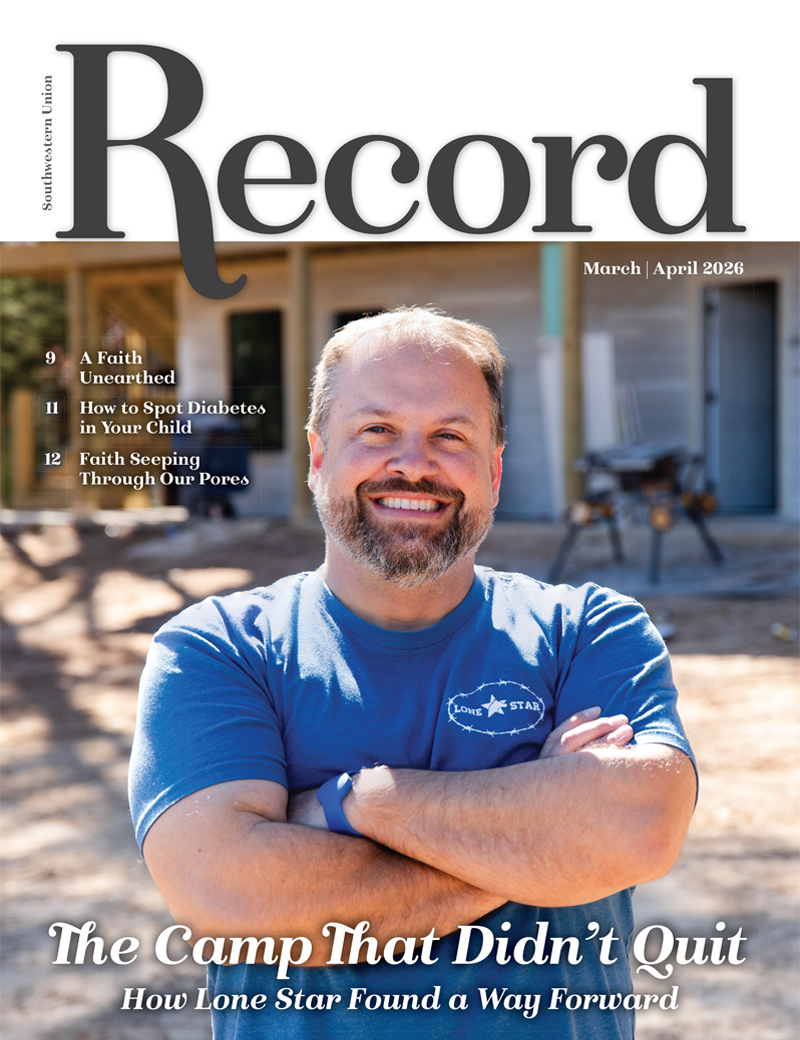A History of Hope

A typical definition of hope found in dictionaries is: a feeling of expectation and desire for a certain thing to happen. I personally find this definition too superficial. The covenant God has with us is not grounded in human emotion. According to the Bible, hope is a certainty, an assurance founded on Jesus’ words from Revelation 22:12: “Look, I am coming soon!”
Ancient Promises
Genesis 3:15 introduces the first assurance of deliverance from the present human condition with a promise given almost 6,000 years ago. This message has a special connection to John 3:16; both passages contain the everlasting Gospel in a nutshell. Namely, the destruction of the serpent/Satan and the gift of God in the sacrifice of His Son.
After the flood, Abraham received a promise that he never saw while alive (Genesis 50:24; Hebrews 11:13). Nevertheless, God will fulfill His promise with Abraham at His Second Coming. This is why throughout the Bible we see the phrase, “the God of Abraham, Isaac and Jacob.” Even though these patriarchs were already dead, the hope of the resurrection was certain.
By the 15th century B.C., Moses was called for a mission, and because of his transgression, he was not allowed to enter Canaan, but by God’s grace he was taken up to heaven instead, representing those who will be resurrected at Christ’s Second Coming.
By the 10th century B.C., David received the promise that Israel shall never lack a king on David’s throne
(2 Samuel 7:12-16). This is fulfilled in the person of Jesus; He is called in the New Testament the “Son of David,” (Mark 10:47; Luke 18:38). He will be the everlasting King, the King of kings.
In the sixth century B.C., Daniel received prophetic visions of future events with details and historical precision leading up to the coming of our Lord. Daniel’s book ends with the words, “As for you, go your way till the end. You will rest, and then at the end of the days you will rise to receive your allotted inheritance,” Daniel 12:13.
Jesus was born in Bethlehem according to prophecy (Matthew 2:5). By then, the 70-week prophecy from Daniel was about to end (Daniel 9:20-27). The Jewish nation had a determined time to study the sacred Scripture, understand the time they were living in and become a beacon of light in this world as they would welcome the long-expected Messiah. That was the first coming of Christ to this world. That took place 4,000 years after the promise was given to Adam and Eve in Genesis 3:15. However, Israel failed drastically by upholding human understanding above God’s revelation, culture instead of Biblical truth, “This is the verdict: Light has come into the world, but people loved darkness instead of light because their deeds were evil,” John 3:19.
Hope Revived
Five centuries later, mainstream Christendom departed from the truth. The Bible was substituted with human tradition. The hope in Christ’s coming was forgotten. This condition lasted until the 16th century. Of course, God always had His people. During those dark years, the Waldensians and others were still preaching the blessed hope.
The Protestant Reformation came as a reaction to the hopeless state of the church in the Middle Ages. God, then, through Martin Luther and other human instruments, brought forth the hope of salvation by faith. “The righteous will live by faith,” Romans 1:17.
Several centuries later, William Miller preached the message of the 2,300 evenings and mornings based on Daniel 8:14. According to his calculations, Jesus would come at a precise time in October of 1844. The calculation was right, but the expected event was not. Thus, Revelation 10:9 was fulfilled: the message was sweet in the mouth, but bitter in the stomach.
From the Millerite movement, the Seventh-day Adventist Church was born. Our name was chosen based on biblical teachings and on our certainty of Christ’s Second Coming. The seventh-day Sabbath is the memorial of creation, and the term “Adventist” points directly to the blessed hope of the Second Coming of Christ.
Now we are at the threshold of eternity. It is our turn to accomplish the task that former generations were looking forward to being part of and that heavenly angels would like to participate in. Thus, the everlasting Gospel will be preached to all nations (Matthew 24:14). Even by secular standards, most people are perceiving that a political, economic, ecological and moral crisis is approaching. On the other hand, prophecies are being fulfilled, characters are being transformed by the power of the Holy Spirit, people are coming into the kingdom of God through the convincing evidence from the Scriptures; while in heaven, Jesus is working in the Most Holy Place of the Sanctuary as our lawyer, defending our cases against the accusations of Satan (Zechariah 3:1-5; Revelation 12:10). All heaven is working for our salvation.
This prophetic movement of Revelation 14:6-13 will be victorious through Christ. Very soon it will be done. Love will triumph, and we will be home.
As Ellen G. White describes in The Great Controversy, “The great controversy is ended. Sin and sinners are no more. The entire universe is clean. One pulse of harmony and gladness beats through the vast creation. From Him who created all, flow life and light and gladness, throughout the realms of illimitable space. From the minutest atom to the greatest world, all things, animate and inanimate, in their unshadowed beauty and perfect joy, declare that God is love.”
By Joaquim Azevedo, Ph.D. Azevedo is a religion professor at Southwestern Adventist University.


